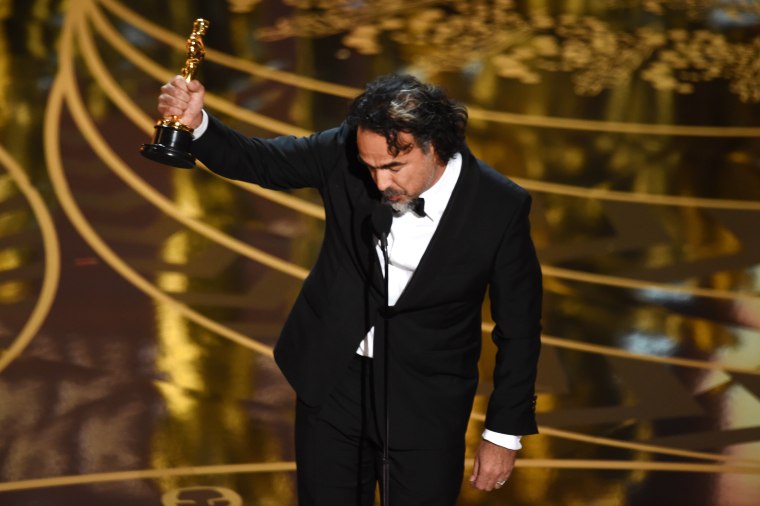So much of the focus around the 88th Academy Awards centered around the need for diversity in Hollywood that it was especially emblematic to see the achievements of Latinos who have been making quite a mark in Hollywood.

For the second consecutive year, Mexico-born director Alejandro González Iñárritu won the Best Director award, this time for “The Revenant,” a technical marvel and revenge tale set in the west of the United States circa 1820’s, thus becoming the third director in film history to ever to win back-to back-Oscars.
It also marked the third consecutive year that an Oscar for Best Director went to a Mexican. Alfonso Cuarón won in 2014 for "Gravity," and González Iñárritu won for "Birdman" in 2015. That is a remarkable and nearly impossible achievement in our era given the present issues of representation at the Academy of Motion Picture Arts and Sciences.
RELATED: Oscars 2016: Mexican Filmmakers Take Home Big Awards - Again
The win for Iñárritu is not only deja vú, it cements him as the best director working in Hollywood right now, regardless of race, period. How did he arrive at this position? If you take a look at his last two films, his secret has been to create cinema which Oscar voters love: Hollywood movies about Hollywood, in the case of "Birdman," and a technical wonder in "The Revenant." He now holds seven nominations and four Oscar wins.
Leonardo DiCaprio's first-ever Best Actor win came at the hands of a Mexican, not Martin Scorsese as many thought would one day happen. Let that sink in.
Iñárritu addressed the diversity issue in his acceptance speech.
"What a great opportunity for our entire generation, to really liberate ourselves from all prejudice and this tribal thinking," he said. "… And make sure for once and forever that the color of our skin becomes as irrelevant as the color of our hair," said the Mexican director.
And the man responsible for filming many of Iñárritu’s directorial achievements, Emanuel “El Chivo” Lubezki, had an even more impressive night. He won in the Best Cinematography category, making him the first cinematographer to ever win three years in a row.
RELATED: 'El Chivo' Makes History with Third Straight Oscar
Even though, Leonardo DiCaprio is not Hispanic, his first ever Oscar win for Best Actor came at the hands of a Mexican, not Martin Scorsese as many thought would one day happen. Let that sink in.
We also witnessed Chile win its first Oscar for the Best Animated Short Film "Bear Story”.
There were Hispanics though who were nominated, but did not take home gold. Mexican sound mixer Martín Hernández from “The Revenant,” lost to “Mad Max: Fury Road,” the Danish Girl’s costume designer Paco Delgado from Spain lost to “Mad Max: Fury Road” as well and Colombia’s artistic and socially aware film, “Embrace of the Serpent,” directed by Ciro Guerra, lost to the Hungary favorite, “Son of Saul,” a moving film about the Holocaust.
Which brings us to the much anticipated Chris Rock monologue. From the moment he stepped on stage, he took to task white Academy voters and Hollywood decision makers and defended the importance behind allowing people of color the same equal opportunities whites get day in and day out.
Chris Rock's monologue focused mostly on the African American community, and none of the prerecorded segments he presented featured a Latino. This can lead to the impression that diversity in Hollywood should be seen mainly through a black/white prism. Ironically, the failure to be inclusive of all races, ethnic and gender groups, not just African Americans, risks diluting the importance of focusing on changing the #Oscarssowhite narrative.
The unification really began at the hands of the winners such as Sam Smith and Alejandro González Iñárritu, as well as the President of the Academy, Cheryl Boone Isaacs - who is African American - and who gave an eloquent speech about diversity inclusion.
Overall, the 2016 Oscar Awards had the air of a protest event where the discussion on sexual abuse, homosexuality, climate change and race took stage front and center. This new generation of diverse young artists, regardless of their backgrounds and challenges, aspire for greatness as well. Hopefully, last night galvanized real change for equal opportunity and not just the idea of it in film.